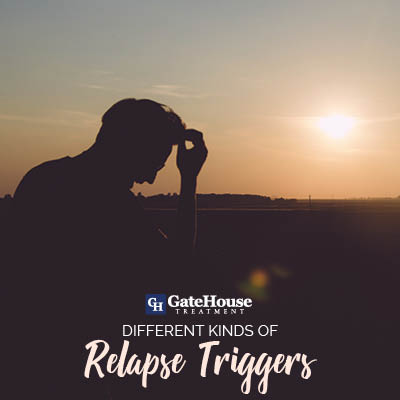
What Are Triggers in Addiction?
When you’re admitted into drug rehabs in NH, like GateHouse Treatment, you are offered much more than just withdrawal relief. There are so many tools for Intensive Outpatient Programs to help their patience physically and mentally clean themselves of addiction, and one step is through relapse prevention . We know that not every recovering addict has access to these resources, and want to continue to help your sobriety by helping you identify an addictive trigger you might find in your life.
Returning to places of abuse. We often find ourselves returning to places we feel comfortable because as humans, we’re creatures of habit. Cutting out parts of your life, like locations you used to frequent to abuse drugs or alcohol, can help prevent potential relapse.
Reconnecting with “bad” friends. There are plenty of people from your past that you associate with drug or alcohol abuse, whether it be they are who introduced you to it or are always around when you used. If your habits have changed and theirs have stayed the same, they can often be the excuse or influence to use “just one more time”.
Understanding emotional prompts. It isn’t uncommon that many addicts use drugs and alcohol as a way to cope with their emotions, whether it is stress, depression, anxiety, or anything else. Understanding your emotions, and coming up with better strategies to dealing with it can help keep you away from substances in the long run.
Tracking your health. Just like we might crave salty, fatty foods when we are dehydrated, poor health can greatly impact the way we are feeling and might make us consider drug or alcohol abuse. If you feel yourself falling into a slump, consider ways to improve your health and cut away the urges to use again.
After learning what are triggers in addiction, this knowledge should be taken seriously. If you are serious about making positive changes in your lifestyle, GateHouse Treatment might be able to help you identify a potential addictive trigger. We’d love to hear your story and answer any questions you might have about our program. Please feel free to contact us today at (855) 448-3588.
- Cymbalta Withdrawal: Causes, Symptoms, And Management - October 12, 2023
- Boredom in Recovery: 5 Tips to Avoid Relapse - October 6, 2023
- Overconfidence and Rehab: Avoiding Relapse - October 4, 2023




